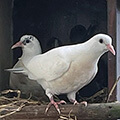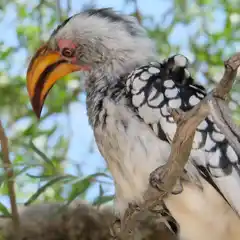







Commercial production of chickens provides an environment where pathogens can rapidly transmit, risking massive economic losses and challenges to welfare. Poultry are also a key reservoir of zoonotic pathogens such as Campylobacter jejuni, where intensification provides an environment suitable for expansion of clonal lineages that are more pathogenic and/or gain a competitive edge. Under field conditions pathogens frequently co-exist, influencing colonisation and/or pathogenicity, for example Eimeria tenella and C. jejuni, key threats for the poultry industry with relevance to food security and safety. The dynamics of these pathogens are of particular importance, since upscaling of live anticoccidial vaccination in place of drugs could theoretically increase the food-safety threat caused by Campylobacter. Here, we have expanded previous work using C. jejuni strain 81-176 and E. tenella to investigate if different Campylobacter strains respond differently during Eimeria coinfection. We have performed a co-infection experiment using commercial-type chickens to explore interactions between C. jejuni strains 488 and 11168 with E. tenella, comparing to mono-infected and uninfected controls. The results of this experiment confirmed that different strains, including C. jejuni 488 (a Type VI Secretion System (T6SS) positive strain), colonise the caeca at a higher level in the presence of concurrent E. tenella infection.
Return to the Grants Awarded page.